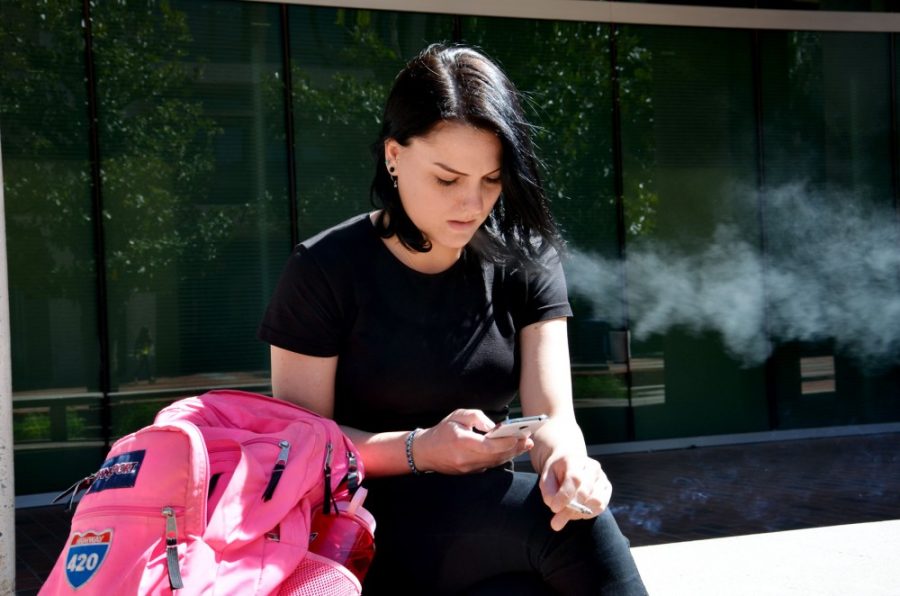The UA is looking to join the more than 800 universities nationwide that have tobacco-free campuses.
The Student Health Advocacy Committee has been working on a draft for a tobacco-free campus policy for two-and-a-half years, and the plan is now under public review.
Stephanie Kha, a biochemistry junior and the director of SHAC, worked on the Tobacco-free University of Arizona Policy, which is an effort to unify existing tobacco policies at the UA and place a campus-wide ban on tobacco products.
Kha worked with Melissa Vito, senior vice president for Student Affairs and Enrollment
Management, to write the draft of this policy and revise it several times during summer 2013. The two sponsors of this policy are Vito and Allison Vaillancourt, vice president of Institutional Effectiveness and Human Resources.
The policy began an eight-week public review period in February, Kha said, adding the feedback period is beneficial because it helps university policymakers to determine how to address people’s concerns.
If additional revisions need to be made after this examination period, the draft will be put up for review again after the revisions are made, Kha said. If the draft does not have any specific changes, the policy will advance toward policy formation.
The policy will then be sent to Faculty Senate, where the Associated Students of the University of Arizona and the Graduate and Professional Student Council will have the opportunity to present a petition with feedback, Vaillancourt said. Once all the feedback is taken into consideration, the policy will be sent to UA President Ann Weaver Hart, who will decide whether to pass it or not.
Kha said that if the policy were to be enacted, enforcement would be a shared responsibility for all of campus.
There are already tobacco policies in place at the UA. The Arizona Health Sciences Center created a tobacco ban in 2013, and the UA has a policy banning smoking within 25 feet of any university building, Kha said.
Vaillancourt said the policy wouldn’t be strictly enforced by police on campus.
“We’re not going to have the smoking police, that’s for sure,” Vaillancourt said.
Since the policy would not be enforced through police citations, Kha said most of the financial costs surrounding the policy are related to signage and communication.
Kha said she anticipates opposition to the policy from both smokers and nonsmokers, because people might view the policy as legislating morality.
However, Kha said, the policy is aimed at creating campus-wide awareness about tobacco use and making resources such as Arizona Smokers’ Helpline and nicotine replacement therapy more available.
Kha added that everyone at the university — faculty and students alike — would benefit from this policy.
“[It] fosters an environment for students to not pick up smoking while on campus,” Kha said.
Nathan Falberg, an economics and political science senior, said this policy could pose a problem to international students who may not understand it.
“I was in Beijing, and people smoked everywhere,” Falberg said. “It would be difficult to enforce this for international students.”
Falberg said this policy would create constraints for people who like to study on campus and take smoking breaks.
David Silva, a civil engineering senior, said he does not favor this policy, and that as a student he feels he should be able to smoke outside of the library during breaks.
“I think they’re trying to send the right message,” Silva said, “but it shouldn’t be forced.”









